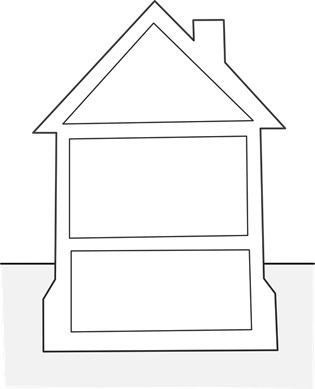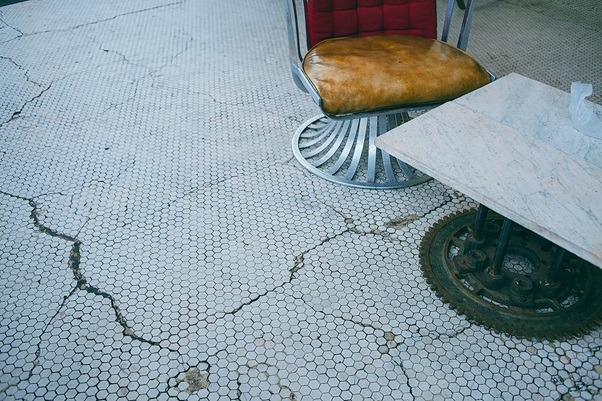Most people think that as long as their home is structurally sound, they don’t need to worry about the foundation. But did you know that your home’s foundation can be damaged without any obvious signs? Most homeowners only find out about the damage to their home’s foundation when it’s too late. Because the common defects found on a building inspection report can help a buyer to make an important final decision whether he will buy it or not.
So how do you know when it’s time for a foundation repair? Here are several warning signs to look out for.
Cracks in the walls or ceilings
If you notice any cracks in your home’s walls or ceilings, it could be a sign of foundation damage. These cracks can be caused by several things, including settling soil and changes in temperature.
However, if you see any cracks, no matter how small, it’s important to have them inspected. Find a professional who can recognize repair foundation issues and potential problems. These professionals can also determine whether the cracks are just cosmetic or if they pose a structural threat.
Additionally, if you see any horizontal or stair-step cracks in your foundation, it’s a sign of serious damage. Or, if you see any cracks that are wider than a quarter of an inch, it’s time to call in a professional.
Make sure to keep an eye out for any new cracks that appear, as well as any old cracks that seem to be getting larger.
Doors and windows are hard to open or close
One of the most common signs of foundation damage is doors and windows that are hard to open or close. This is usually caused by the house settling unevenly, which puts pressure on the doors and windows. In some cases, you may be able to fix this problem by simply adjusting the door or window frames. But if the issue persists, it’s a good idea to have your home’s foundation inspected.
You can also check to see if your doors and windows are hard to open or close by looking at the gaps around them. If the gaps are larger on one side than the other, it’s a sign that the door or window is no longer level. Or, if the door or window is sticking, it could be a sign that the frame has shifted.
Gaps in floor tiles
The floor tiles in your home are also a good indicator of foundation problems. If the tiles are cracked or gaps have appeared between them, it could be a sign that the foundation has shifted. This is usually caused by the house settling, which puts pressure on the tiles and makes them crack. If you notice any cracks or gaps in your floor tiles, it’s important to have them inspected by a professional.
If this is the problem, you’ll need to have the foundation repaired to prevent further damage. It does differ from having cracks in the ceiling which is mostly due to temperature changes.
On the other hand, if the cracks are small and don’t appear to be structural, you may be able to repair them yourself. But if the cracks are large or numerous, it’s best to leave the repairs to a professional.
Water damage
This can be anything from a small leak to major flooding. Water spots on the ceilings or walls are usually caused by leaks in the foundation, which can be difficult to spot. For example, if you have a basement, water may be seeping in through cracks in the foundation and causing damage to the walls or floors.
If you notice any water damage in your home, it’s important to have it inspected by a professional as soon as possible. Water damage can lead to mold growth, which is a type of fungus that thrives in damp, dark environments. If you notice any mold growth in your home, it’s a good indication that there’s water damage. Mold can cause serious health problems, so it’s important to have it removed as soon as possible.
Uneven floors
If you notice that your floors are uneven, it’s one of the clearest signs that the foundation has shifted. The problem usually gets worse over time, so if you’ve only recently noticed the issue, the damage has likely been accumulating for a while.
Uneven floors are also a sign of a settling foundation. This happens when the soil around your home’s foundation starts to sink. The weight of the house can cause the foundation to settle as well, which leads to cracks and other damage. Also, if you have a basement, water can seep in through cracks in the foundation and cause the floors to buckle.
If you notice any unevenness in your floors, it’s important to have your home’s foundation inspected as soon as possible. Left unchecked, the problem will only get worse and could eventually lead to structural damage.
The age of the building
If your home is more than 50 years old, the foundation has likely started to settle. This is especially true if the building is located in an area with a lot of clay in the soil. Clay expands when it’s wet and contracts when it dries out, which can put pressure on the foundation and cause it to settle.
Additionally, if your home was built on fill dirt, it’s also likely to settle over time. This is because fill dirt is usually less dense than the surrounding soil, so it can’t support the weight of the house as well as other types of soil.
This means that if your home is more than 50 years old, it’s a good idea to have the foundation inspected regularly, or even consider replacing it. This will help you spot any problems early on and prevent them from getting worse or causing structural damage.
Energy bills
If you’ve noticed a sudden increase in your energy bills, it could be caused by cracks in the foundation. Cracks can let in drafts, which can make your home harder to heat or cool. As a result, your heating and cooling system will have to work harder to maintain the desired temperature, which uses more energy and drives up your bills.
If you’ve noticed a sudden increase in your energy bills, it’s a good idea to have your home’s foundation inspected for cracks. Once the cracks are repaired, you should see a decrease, and there should be no further increase in your energy bills.
There are several signs that you may need to have your home’s foundation repaired. If you notice any of the seven signs listed, it’s important to take care of the problem as soon as possible. Left untreated, the damage could get worse and lead to structural damage.
If you’re unsure whether or not your home needs foundation repair, it’s always a good idea to consult with a professional. They will be able to assess the damage and recommend the best course of action.


